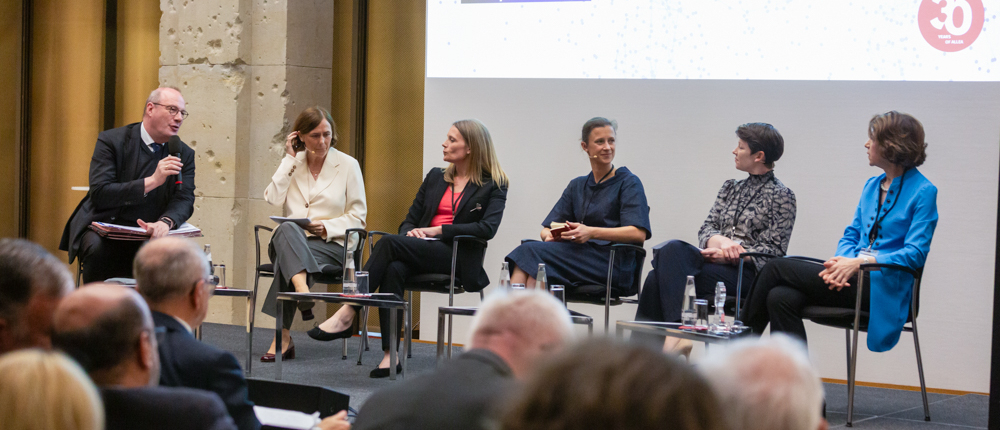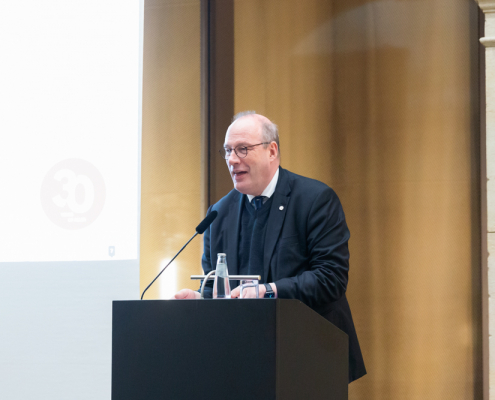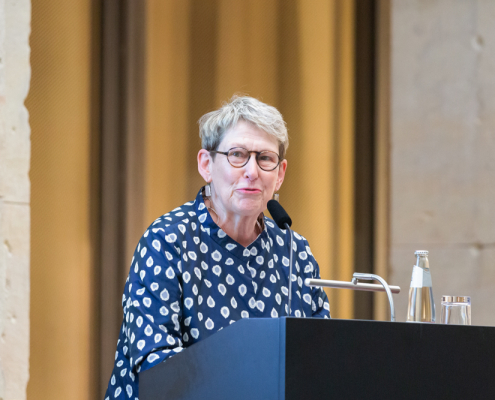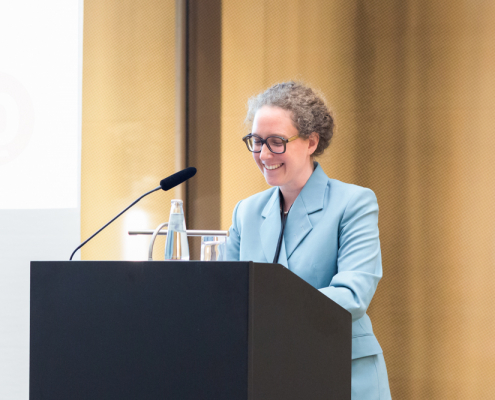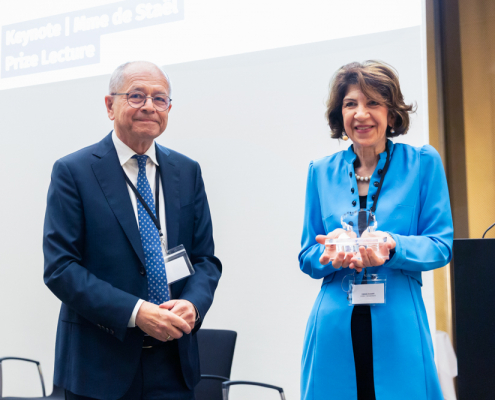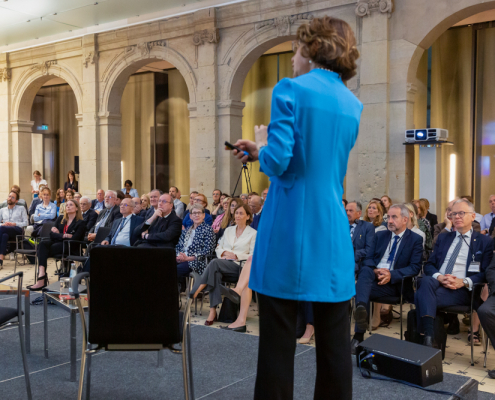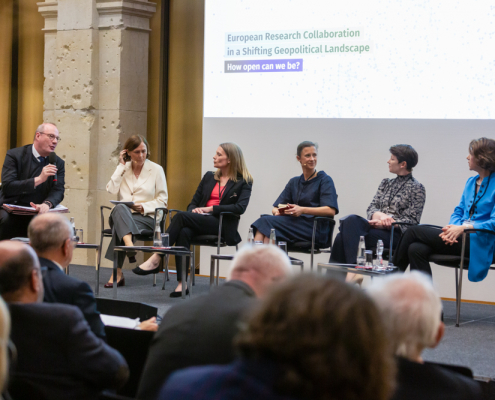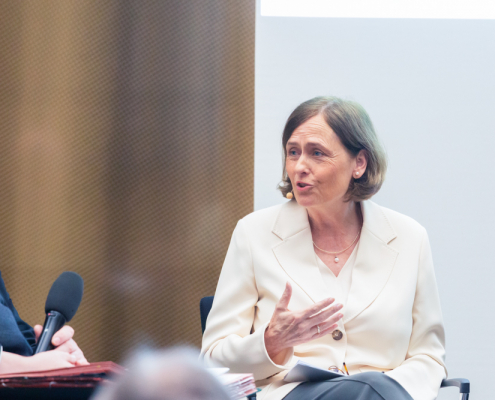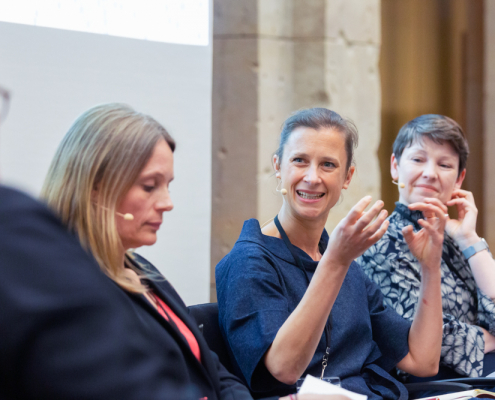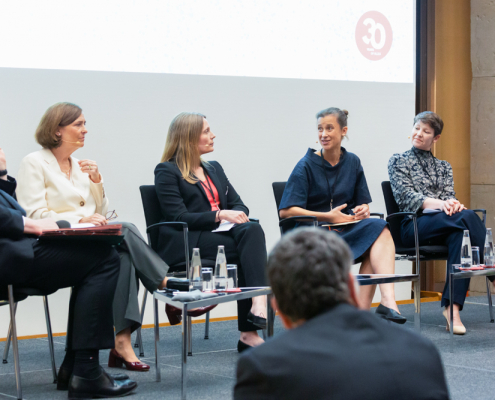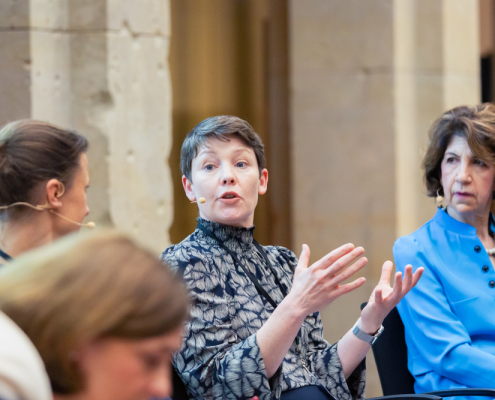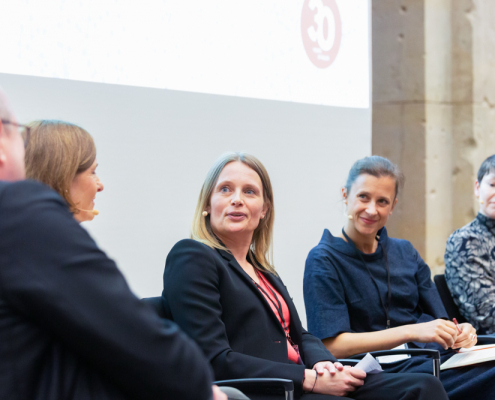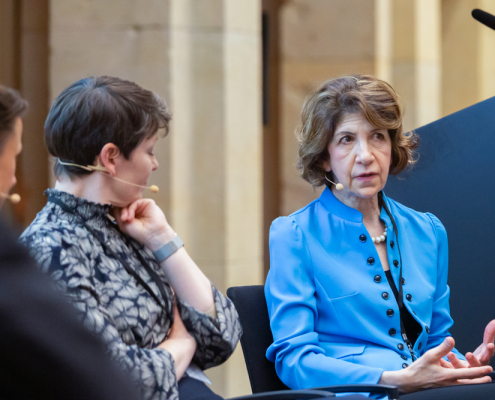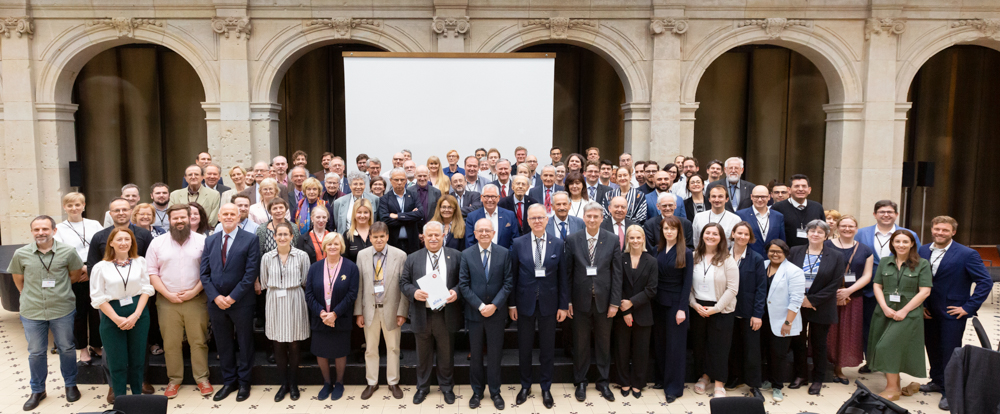EVENT REPORT: European Research Collaboration in a Shifting Geopolitical Landscape – How Open Can We Be?
A summary of the scientific symposium ‘European Research Collaboration in a Shifting Geopolitical Landscape: How Open Can We Be’, held as part of the 2024 ALLEA General Assembly, which took place on 22-23 May 2024.
ALLEA marked its 30th anniversary with its general assembly in Berlin, co-hosted by its three German member academies: the German National Academy of Sciences – Leopoldina, the Union of the German Academies of Sciences and Humanities, and the German Young Academy – Die Junge Akademie. The event featured a public symposium titled ‘European Research Collaboration in a Shifting Geopolitical Landscape: How Open Can We Be?’, which convened prominent researchers, policymakers, and civil society representatives from across Europe to explore the complexities and opportunities of open research collaboration in today’s evolving geopolitical climate.
The symposium began with welcome and introductory remarks from Ulla Bonas of the German National Academy of Sciences Leopoldina, Lara Keuck of the German Young Academy, and Christoph Markschies of the Union of the German Academies of Sciences and Humanities. These opening addresses set the stage for a series of insightful discussions on the critical importance of maintaining openness in research amidst shifting global dynamics.
International Collaboration in Particle Physics: Keynote Speech by Fabiola Gianotti (CERN)
After receiving the Madame de Staël Prize from ALLEA President Antonio Loprieno, Prof Fabiola Gianotti discussed the Higgs boson’s discovery and its broader implications. Her presentation highlighted the collaborative nature of European research, particularly through CERN’s contributions to scientific innovation and international cooperation. Emphasising the socio-economic benefits and technological advancements from CERN’s research, Gianotti underscored the significance of open science and global collaboration in addressing future scientific priorities and challenges in fundamental physics.
Navigating Openness: Panel Discussion
In addition to keynote speaker Fabiola Gianotti, the following panel discussion featured Katja Becker (German Research Foundation – DFG / Leopoldina), Nienke Buisman (European Commission), Janneke Gerards (Utrecht University / KNAW), and Valeska Huber (University of Vienna / Die Junge Akademie). The discussion underlined the ongoing tension between openness and closure in European research collaboration, acknowledging their historical coexistence: While there has been a longstanding push for maximum openness over the last decades, a noticeable shift away from this discourse is evident today. This change reflects the complex dynamics of globalisation, emphasising a balance between open international cooperation and safety. Rather than a binary approach, the panellists expressed the importance of ensuring openness where it can be achieved safely, emphasising a strategy of ‘de-risking’ instead of ‘decoupling’.
Openness and promoting open science principles in research was stressed as crucial for progress and fairness. Open research collaboration aims to advance research and reduce global inequities by making knowledge and technology accessible to all. However, while openness fosters diverse perspectives and dynamic research, it must be pursued responsibly. There was a fair recognition of practical, ethical, and security-related limitations among the panellists, challenging the somewhat idealistic belief in unlimited data sharing.
The importance of respecting academic freedom and allowing researchers and institutions to independently decide on collaboration partners was continuously highlighted. Despite useful regulations, lists and guidelines, the ultimate decision should rest with scientists, considering individual cases, informed but not restrained by broad principles.
The panel also emphasised how important it is to maintain research collaboration for building bridges, especially during conflicts, promoting dialogue and inclusion. Opportunities to collaborate with scholars from countries involved in international conflicts should not be missed, and efforts to engage directly with conflicting groups and programmes are essential. Reinforcing bridges relies on promoting researcher mobility and exchanges. Risk-taking is inherent to research. It’s essential to balance potential risks with inclusivity, ensuring that diverse perspectives contribute to scientific discourse, and considering and involving a broad range of perspectives, including displaced scholars and scholars at risk.
The discussion on the question of regulating international research collaboration and security highlighted that such regulations should protect and empower researchers and research institutions, enabling them to take informed and responsible decisions. This poses challenges, at times potentially limiting opportunities and freedoms. However, clear rules and procedures also present opportunities to build capacities for risk evaluation and harmonise approaches across the European Union and beyond. Initiatives like the European Research Area (ERA) aim to enable responsible research collaboration rather than hinder it.
For instance, the recently adopted European Council recommendation on research security, for which the European Academies (represented by ALLEA) had been consulted, aims to raise awareness and build resilience within the EU, emphasising risk management across different governance levels. By respecting self-governance, such initiatives need to be aimed at fostering a level playing field and informed decision-making.
Ultimately, all panellists agreed that the goal is to navigate risks while maintaining collaboration as open as possible, fostering independent and informed decisions.
To close the symposium, ALLEA President Antonio Loprieno emphasised this balance between openness and safety in science. Referencing the historical context of changing social institutions and the evolving role of information technology in shaping this balance, he concluded by expressing optimism for future collaborative innovations.
Celebrating 30 Years: Festive Reception
To start the following reception celebrating ALLEA’s 30th anniversary, Commissioner Ilana Ivanova congratulated the European Academies on decades of successful European collaboration through a video address, highlighting the crucial role of academies in fostering research and innovation. She was followed by a congratulatory address opening the festivities by Henry Marx, Berlin State Secretary for Higher Education and Research.
Hermann Parzinger provided the laudatory dinner speech in which he celebrates ALLEA’s role as a crucial network for scientific and academic cooperation across Europe. Sharing personal experiences from his outstanding research career in Eastern and Western Europe, he highlighted ALLEA’s formation in 1994 as a response to the new post-Iron Curtain Europe, celebrating its success in fostering collaboration among European academies of sciences and humanities and its indispensability in today’s complex world for facilitating essential scientific and cultural cooperation across Europe. Read his full speech here.
Business Meeting
During the annual business meeting on 22 May, delegates from ALLEA’s Member Academies convened to address matters concerning the organisation’s governance and policy direction. Notably, the meeting saw the inauguration of Paweł Rowiński as the eighth president of ALLEA, succeeding Antonio Loprieno, and the election of a new board for the term 2024-2027. Moreover, the business meeting highlighted ALLEA’s consolidation as a registered charitable organisation in Germany. For further insights into ALLEA’s recent activities and future endeavors, the ALLEA Activities Report 2023–2024 provides comprehensive details on the organisation’s initiatives, working groups, projects, and events aligned with its strategic priorities.
Photos of the 2024 ALLEA General Assembly are available on this page.
About the ALLEA General Assembly
The General Assembly annually convenes academies of sciences and humanities from almost 40 countries across the Council of Europe region. General Assemblies are hosted by ALLEA Member Academies and the programme typically consists of the internal business meeting of academy delegates, and a scientific symposium that is open to the public. The symposium explores pressing topics from the fields of science, society, and policy, and provides a platform for international, interdisciplinary, and cross-sectoral debate. The business meeting addresses governance, strategy, and policy matters and is restricted to Member Academies’ delegates.

